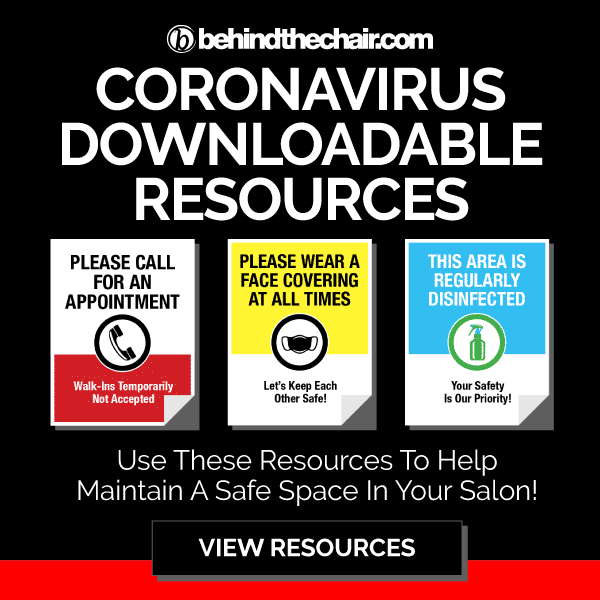Should Salon Clients Sign COVID-19 Liability Waivers?
Plus, Get Downloadable Examples of Client Waivers
Client COVID-19 Liability Waivers: What You Need To Know
Many salons are having clients sign COVID-19 liability waivers as possible protection against lawsuits for exposure to coronavirus. Are you considering using a waiver, or have you been using one? Keep reading for examples and what you should know.
Disclaimer: The information in this article is provided for informational purposes only, and should not be construed as legal advice on any subject matter. You should not act or refrain from acting on the basis of any content included in this article without seeking legal or other professional advice.
Almost 3,000 coronavirus-related lawsuits have been filed in the U.S. as of mid-June, according to law firm Hunton Andrews Kurth. While the majority were brought by businesses over insurance coverage, there are cases filed claiming lack of personal protective equipment, exposure at work, wrongful death or personal injury. Some state governments and the federal government are debating legislation that would protect businesses from certain COVID-19 related lawsuits, but until laws are passed, it’s in your best interest as a business owner to protect yourself.
Now Available In The BTC Shop: Masks & Face Shields! BEST PRICE On PPE—Click Here To Shop Today!
Do Waivers Actually Work?
It is difficult to say whether any or all COVID-19 waivers would hold up in court—mostly because this is an entirely new situation that no court has analyzed yet. Plus, states vary widely in how waivers are enforced in court.
Most places in the U.S. will enforce liability waivers that protect a business if a guest acts negligently.
What This Means For Your Salon: If a guest enters an area marked off limits to customers, opens a tub of lightener and gets a chemical burn, your business would likely be protected if the guest signed a liability waiver.
Some states, such as Alabama, enforce waivers on the basis of freedom of contract. This means that the state supports a waiver because you and the person signing the waiver have the freedom to enter into a contract.
Three states—Connecticut, Montana and Virginia—will NOT enforce liability waivers, so businesses in these states won’t be protected regardless of whether a guest signs.
A majority of states will enforce valid waivers, but most will NOT enforce waivers that attempt to protect a business against intentional, reckless or grossly negligent conduct.
What This Means For Your Salon: Your salon waiver could hold up if an employee unknowingly passes COVID-19 to a guest, but would likely NOT hold up if an employee knew they had COVID-19 and came to work anyway. Knowingly exposing others to COVID-19 may be considered reckless or grossly negligent.
You should also know that courts don’t enforce waivers that contradict public policy. Because COVID-19 affects the public as a whole, and because there are so few examples of court cases and waivers dealing with COVID-19, it is unclear if liability waivers for exposure would be considered contrary to public policy.
Examples of COVID-19 Liability Waivers In Salons
Click Here to Download a PDF of COVID-19 Liability Waiver Examples!
The Pros and Cons of COVID-19 Liability Waivers in Salons
Now that you understand liability waivers and have seen some examples, let’s talk about whether you want to use one or not.
Pros:
- May limit or prevent certain liability
- Helps highlight your safety efforts and communicate risks to your clients
Cons:
- Not effective at preventing all forms of negligence claims
- Could potentially make clients anxious or cause them to choose another salon if they do not want to sign the waiver.
Considerations:
- Must be carefully drafted with specific language, because broad examples may not be effective in court.
- States vary in how liability waivers are upheld, so talk to your attorney.
Salon Options Instead of Waivers
If you don’t want to offer a waiver, another strategy would be to offer a questionnaire. This asks clients about whether they have symptoms or were exposed to COVID-19 and help communicate your business’ efforts at minimizing risk. Download a sample questionnaire—click here!
You can also hang signs in your salon to communicate your risk-minimizing efforts. Click here to download salon signage you can print and use today!










